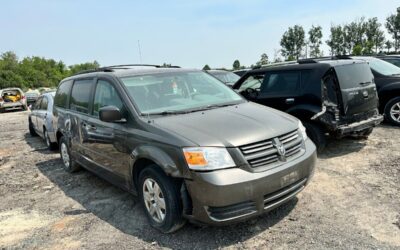Introduction
Buying a car is one of the most significant purchases people make, second only to buying a house. A car is much more than simply a way to get around; your car choice impacts your finances, convenience, and future expenses. In today’s market, the number of cars available is staggering, but one decision always looms over every buyer: whether to choose a new or used car.
Both choices have their pros and cons. A new vehicle comes with warranties and the latest features, offering peace of mind knowing that if something goes wrong, you are covered. A used vehicle is generally much more affordable and tends to depreciate more slowly.
Ultimately, your decision will be based on your lifestyle and financial planning, in addition to how long you plan to keep the vehicle. In this blog post, we want to share the pros and cons of buying a new or used car so you can make a decision that is clear and aligns with your unique needs.
Benefits of Purchasing a Brand-New Vehicle
- Up-To-Date Features and Technology
Most new vehicles come equipped with the latest technology. New vehicles often have better fuel efficiency and advanced safety systems, such as automatic braking and lane assist. New cars are designed to make driving easier and safer.
- Complete Warranty Coverage
New vehicles come with a manufacturer’s warranty that generally covers parts and repairs for at least three to five years. This reduces the chances of expenses from repairs during the first years of ownership.
- Lower Maintenance Needs
A new car only needs to be serviced on a routine basis for a few years. For the first few years, you typically only need routine servicing (such as oil changes and tire rotations), without worrying much about major repairs.
- Financing Choices
Dealers and manufacturers often offer lower interest rates and discounts on new cars, which can make financing easier to manage.
Disadvantages of Purchasing a New Vehicle
- Higher Cost
A new car is going to set you back a lot more than a used car. The average car depreciates by 20–30% in the first year alone, and within three to four years, it may be worth only about half of what you paid. - Drastic Depreciation
The value of a new car drops rapidly. The average car depreciates 20–30% in the first year alone, and in three to four years, it will likely be worth no more than half the cost you paid for it.
Advantages of Purchasing a Used Vehicle
- Reduced Purchase Price
Used vehicles are less expensive than new vehicles. This means you can either save money or afford a higher model within the same budget as a new base model. - Slower Depreciation Rate
The previous owner has already absorbed the majority of the depreciation, so a used vehicle will not depreciate as rapidly as a new vehicle. This makes a used car a better financial decision if you plan to keep it for a short to medium period. - Lower Insurance Costs
Insurance costs are based on the market value of a vehicle. Since used vehicles generally have lower value than new vehicles, the insurance premium will usually be much lower. - Broader Options for the Price Range
If you choose used, you may be able to afford a better brand, a higher trim level, or premium features that wouldn’t fit your budget if purchased new.
Also Read: Cheapest Cities in Canada to Buy a Used Car (GTA Guide)
Disadvantages of Purchasing a Used Vehicle
Limited Warranty: You may have to pay out-of-pocket for repairs unless the vehicle is certified pre-owned or still covered under the original manufacturer’s warranty.
- Rising Maintenance Costs
Older vehicles are more likely to require part replacements or repairs. Additionally, you may have to pay for updating features such as tires, brakes, or batteries. - Unknown History
You can never be sure what the previous owner put the vehicle through, even with vehicle history reports and inspections. There is always a slight chance of an unknown issue.
Key Factors to Consider Before Choosing
| Factor | New Car | Used Car |
| Price | Higher | Lower |
| Warranty | Full coverage for years | Limited or none |
| Depreciation | High in the first few years | Slower after the initial years |
| Insurance Cost | Higher | Lower |
| Maintenance | Low in early years | May increase with age |
| Features & Tech | Latest | May miss newer updates |
| Financing Offers | Often better deals are available | Can be higher interest rates |
Which Option Is Right for You?
Whether you decide on a new or used car is ultimately a personal decision that depends on your priorities:
Go with a new car if:
-
- You want the most up-to-date safety and technology features.
- You don’t want to worry about the vehicle’s history.
- You want warranty protection.
Choose a used car if:
-
- You’re on a budget but still need a good vehicle.
- You’re not concerned about having the latest technology.
- You’re looking for lower insurance costs and less depreciation.
- You’re okay with changing your vehicle in a few years.
Final Thoughts
There are plenty of positives and negatives for both new and used cars. If you want warranty protection, resale value stability, and the newest features, then you will likely be happier with a new car. On the other hand, if you want to save money, prevent worrying about depreciation, and seek lower insurance rates, then a used car is a great choice.
Before deciding, evaluate your budget, driving habits, and how you plan to use the car in the future. A well-informed decision comes from careful consideration and is far more valuable than a last-minute choice based on trends or impulse.
Frequently Asked Questions
1. Is it cheaper to buy a new or used car in Canada?
Yes, used cars are almost always cheaper than new cars. Not only is the upfront purchase price lower, but you’ll also save on insurance, registration, and depreciation compared to buying brand-new.
2. How much does a new car depreciate in the first year?
On average, a new car loses about 20–30% of its value in the first year. After three to four years, most vehicles are worth only about half of their original purchase price.
3. Are used cars more expensive to insure?
No, used cars usually have lower insurance costs because premiums are based on the car’s current market value. Since used cars are valued lower than new cars, you’ll often pay less for insurance coverage.
4. What is a certified pre-owned (CPO) vehicle, and is it worth it?
A certified pre-owned (CPO) vehicle is a used car that has been inspected, refurbished, and certified by the manufacturer or dealer. They often come with extended warranties and extra benefits, making them a safer option than a regular used car, although they can be more expensive.
5. Is financing easier for a new car than a used one?
Yes, financing is usually easier for new cars. Lenders often offer lower interest rates, longer loan terms, and special incentives on new vehicles compared to used ones. Financing for used cars can come with higher rates since they carry more risk for lenders.





